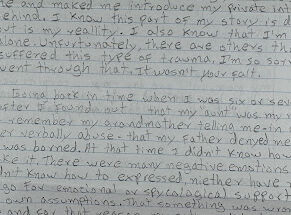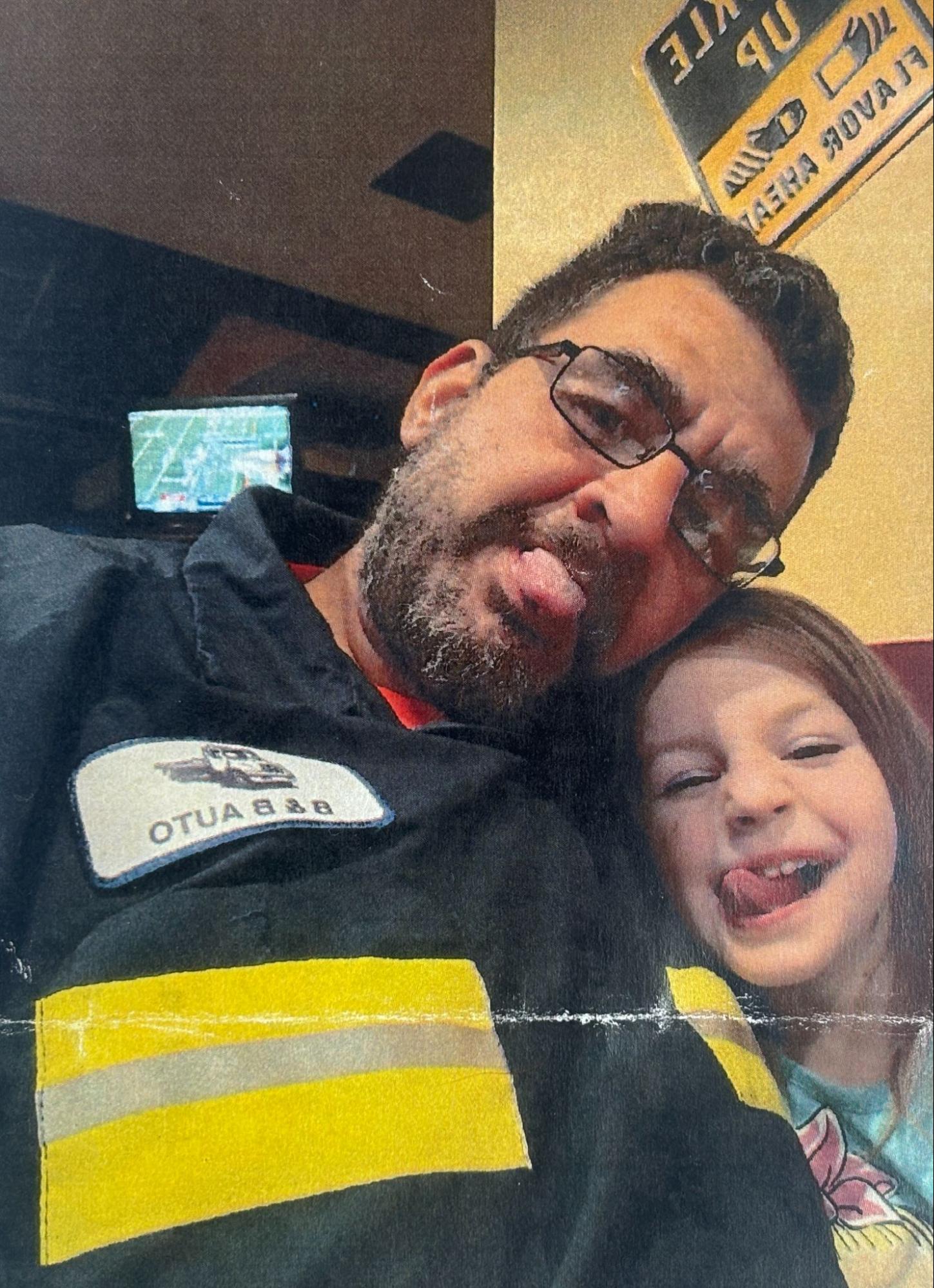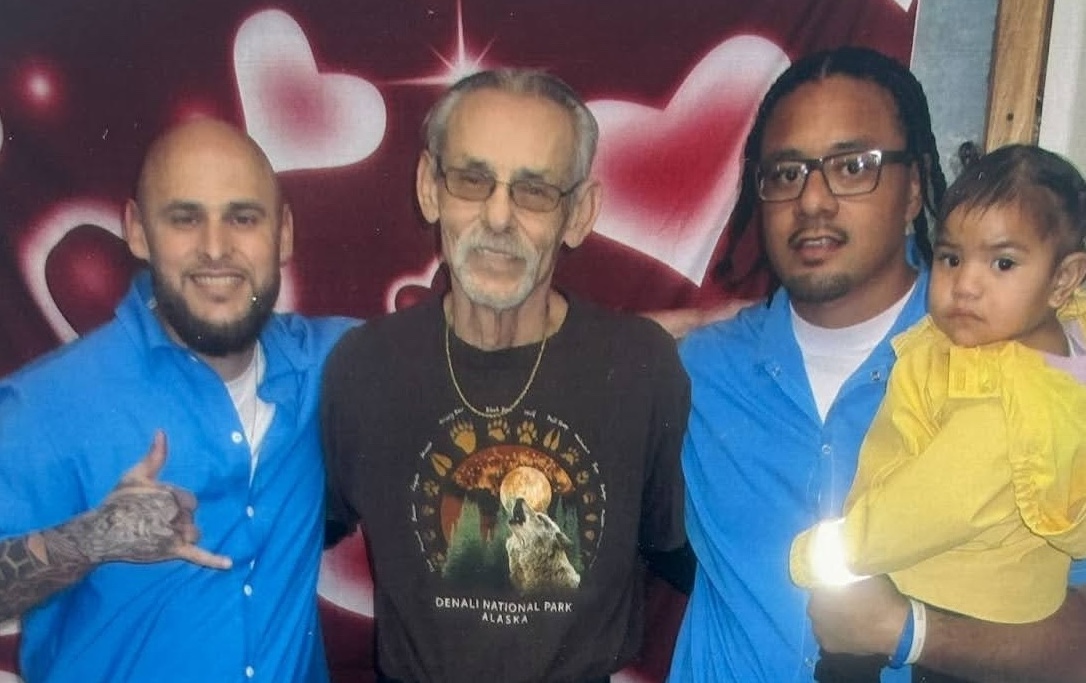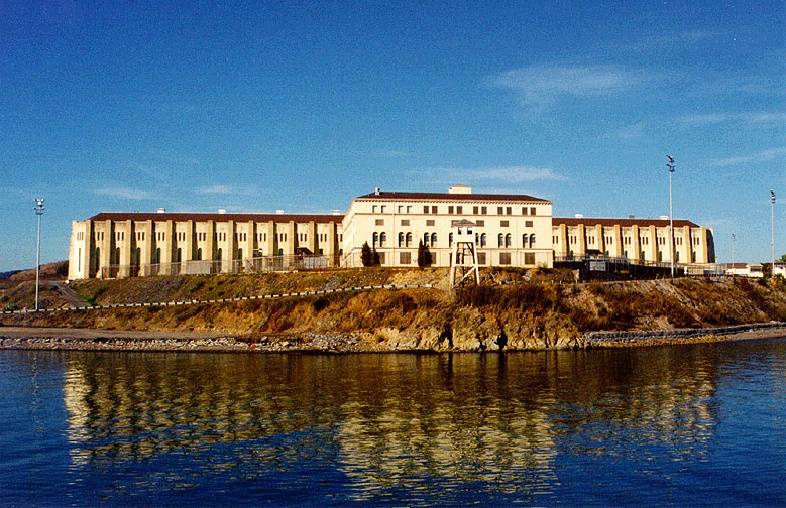While I know I can’t undo the damage I caused, I also know I have the power to change my future through the decisions I make today.
I was born and raised in El Salvador in a poor, uneducated, and abusive family. I was my mother’s first child, and I assume she didn’t have much experience. She left me in the care of my grandmother and uncle, who physically, emotionally, and verbally abused me. Honestly, I don’t have many good memories from my childhood. I remember seeing my mom come home every two weeks, but until I was six, I didn’t even know she was my mother. One day, I heard my cousins calling her “aunt,” so I called her “aunt” too. That’s when my grandmother told me, “You fool, she’s your mother.” I was confused and didn’t know how to process it.
I had so many negative emotions I didn’t know how to express them. I had no one to turn to for emotional or psychological support. I made my own assumptions—that something was wrong with me, and that’s why my father didn’t want me in his life. I felt I wasn’t worthy of being treated well. These beliefs only strengthened as the years went by and I continued to endure everything I went through. I remember seeing other kids going to school with both their mother and father and feeling sad because I didn’t have that blessing.
There was another uncle that lived three houses away from us. I remember him coming over almost every morning before going to work and getting into my bed. Now I know that he was molesting me and negatively affecting the rest of my life. There were other men also. I know this part of my story is disturbing but it is my reality. I also know that I am not alone. Unfortunately, there are others that have suffered this type of trauma. I’d like to share with those who have gone through this, I’m so sorry you went through that. It wasn’t your fault.
I wanted to go to school, but my uncle told me that in order to survive, I didn’t need an education; I needed to learn how to work in the cornfields. Finally, when I was eleven, they decided to send me to school. I was the oldest boy in the class, and I only completed the sixth grade.
At sixteen, I was kicked out of the house by my uncle. I was so tired of all the physical, emotional, and verbal abuse. I had worked like a slave for him in the cornfields without pay. I wished I had money to buy my own clothes, but the only clothes I had were the ones people gave to my grandmother. As a teenager, I was embarrassed to keep wearing those old, worn-out clothes, so I decided to challenge my uncle by refusing to work for him anymore. When he found out I didn’t go to work, he came ready to beat me with his belt. It’s unbelievable that at that age, he was still physically abusing me. Now I understand that I had become so used to the abuse that it seemed normal. That was when I decided to stand up to him, and as a result, I was kicked out of the house.
My drug use started when I was eleven. I remember seeing my aunt’s husband smoking weed every day, at least four or five times a day. He even planted and grew weed in the middle of the cornfields. One day, I decided to try a blunt. Then another blunt, and another. I liked it because it helped me escape from reality, gave me confidence, and allowed me to accept myself—or at least, that’s what I thought. When I didn’t have any weed, I started sniffing glue, thinner, gasoline, and drinking alcohol. All of this happened between the ages of eleven or twelve and 23. When I immigrated to the United States my addiction continued. I began mixing cocaine with weed and alcohol, and later, I started using crystal meth. Today, after a decade of abstinence and almost two years in recovery, I can say that I’m not proud of my life of addiction.
My relationships were a mess. In every relationship, I wanted to have power and control, and when the person didn’t comply, I mistreated her. At 25, I met a wonderful woman from Puebla, Mexico, who lived in Richmond, California. She had four kids from a previous relationship. I convinced her that I loved her, and we lived together for almost two and a half years. She got pregnant and gave birth to our son, Junior. She and her kids put all their trust in me, and I failed them by committing a horrendous crime, which I’d rather not mention because I don’t want to make anyone uncomfortable. I am so, so sorry.
At the age of 27, I was arrested in Richmond. This was the beginning of my new life. It was in jail that I started to reflect on what I had done and began to see things as they truly were. There were many things I didn’t understand, but I knew I had done something very bad and deserved to be punished. At that time, I didn’t speak English at all, which made everything even tougher and more confusing. I eventually pleaded guilty and was sentenced to 46 years in state prison.
I had always wished to go to school and gain some intellectual knowledge, but I was discouraged by the thought that I was too old. The first seven years of my imprisonment, I was deeply involved in Christianity—there’s nothing wrong with that. Even though my faith in God was strong, something was still missing within me. It was good to know who I was in God’s eyes, but I didn’t know who I was in this world, or for this world. I was preparing myself for life after death, but I wasn’t preparing for life after prison.
In the last five years, I’ve focused on educating myself, and for the past year and a half, I’ve been preparing for life after prison. I earned my high school diploma and have completed 21 college courses, working towards a degree in Arts and Humanities. I’ve also been attending self-help groups. Through all of this, I now see the world from a different perspective. I’ve come to love education and recovery. I wish I had started earlier or had the knowledge I have now before I committed my crime. While I know I can’t undo the damage I caused, I also know I have the power to change my future through the decisions I make today. I’ve learned that recovery and education are not destinations, but lifelong journeys—journeys that will only end when I die.
Today, I love and miss my son. I love and miss my family, the people who care for me, and my freedom. I love myself, my education, and my recovery.
To the survivors of my crime, I am so sorry for what I did to you. None of it was your fault—it was all mine. I take full responsibility. I know there’s nothing I can do to undo the horrendous damage I caused. Not even a billion apologies would make it better. But I want you to know that every day I live, I live with remorse. I live to honor you through my actions—by educating myself, working on my recovery, treating my sickness, and seeking therapy. I will continue on this path for the rest of my life.
To HUMANS OF SAN QUENTIN, thank you for giving me a voice. I know my English isn’t great, and it’s something I’ll keep working on. You have my permission to publish this, to reorganize and change anything that might not make sense in my writing. There’s much more to my story, but I need to learn how to express it more effectively. For now, this is who I am.






